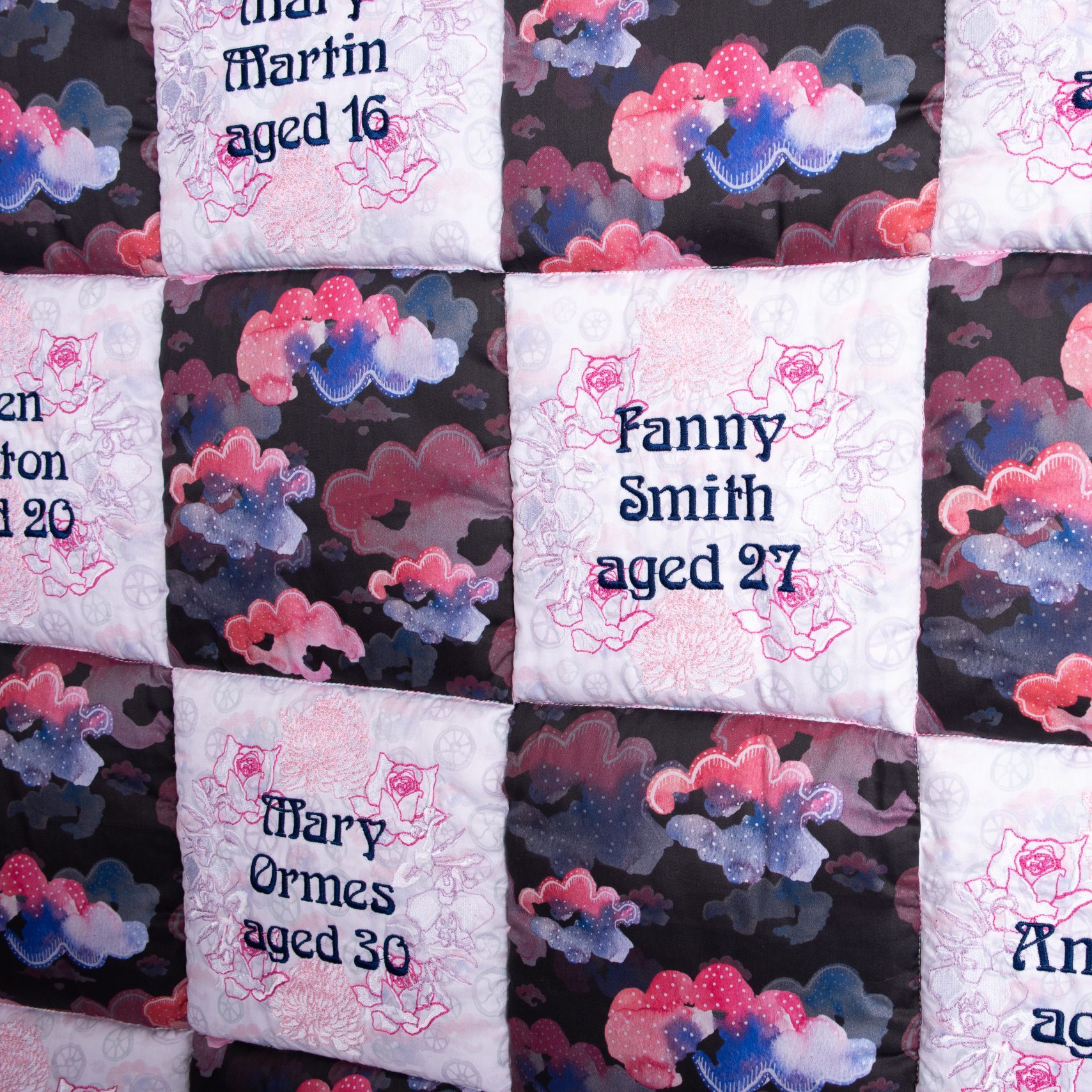Elizabeth Gibson is a Manchester poet and playwright. We commissioned Elizabeth to produce dramatic monologues based on the Workers’ Rights portions of our Heritage research. In the course of reading about The Collapse of Islington MIll, she was also moved to produce this poem, titled ‘Falling’.
‘Falling’
by Elizabeth Gibson
Verdict:
Accidentally killed by the falling of a cotton factory [1]
Falling like apple blossom, teasing at a land of fairies,
falling like rain, nearly every day in this city,
falling like you fall, shrieking, from your very first tree,
falling like conkers: you’re the champion of your street.
Falling like your first bleed – you feel like a red ocean,
falling like shooting stars, you leap up, grab and wish on,
falling like smock and scarf, each night when you get off,
falling like echoes from your trusty, bumpy clogs.
Falling like you into his arms, into bed with tough frame,
falling like words you won’t remember when you wake,
falling like paper confetti, around you on those steps,
falling like new-starched sheets over those aching legs.
Falling like tears, from your new-born’s sticky lids,
falling like music, each joyful, desperate hymn,
falling like Easter on this day, Whitsun on that,
falling like snow over everything, claiming it back.
Falling like fresh ink from a pen, a doctor’s pen,
a coroner or a reporter or a judge’s pen,
falling like paper falls – heavier than you’d know,
verdict: accidental, falling like a last breath of hope.
How can it fall, this monster of bricks and steel,
staircases, windows and heavy, noisy machines,
and humans, strong and complex, bones and brain:
look at that Mill – someone has to take the blame.
But no-one does, they open back up, and here you are,
falling into routine, falling sick, falling fast and hard.
You were born falling, and all you can do is try to float,
breakable as a cotton flower, burning like a coal.
[1] The Portfolio of Entertaining & Instructive Varieties in History, 1825. Vol 4. Pages 81-84
















